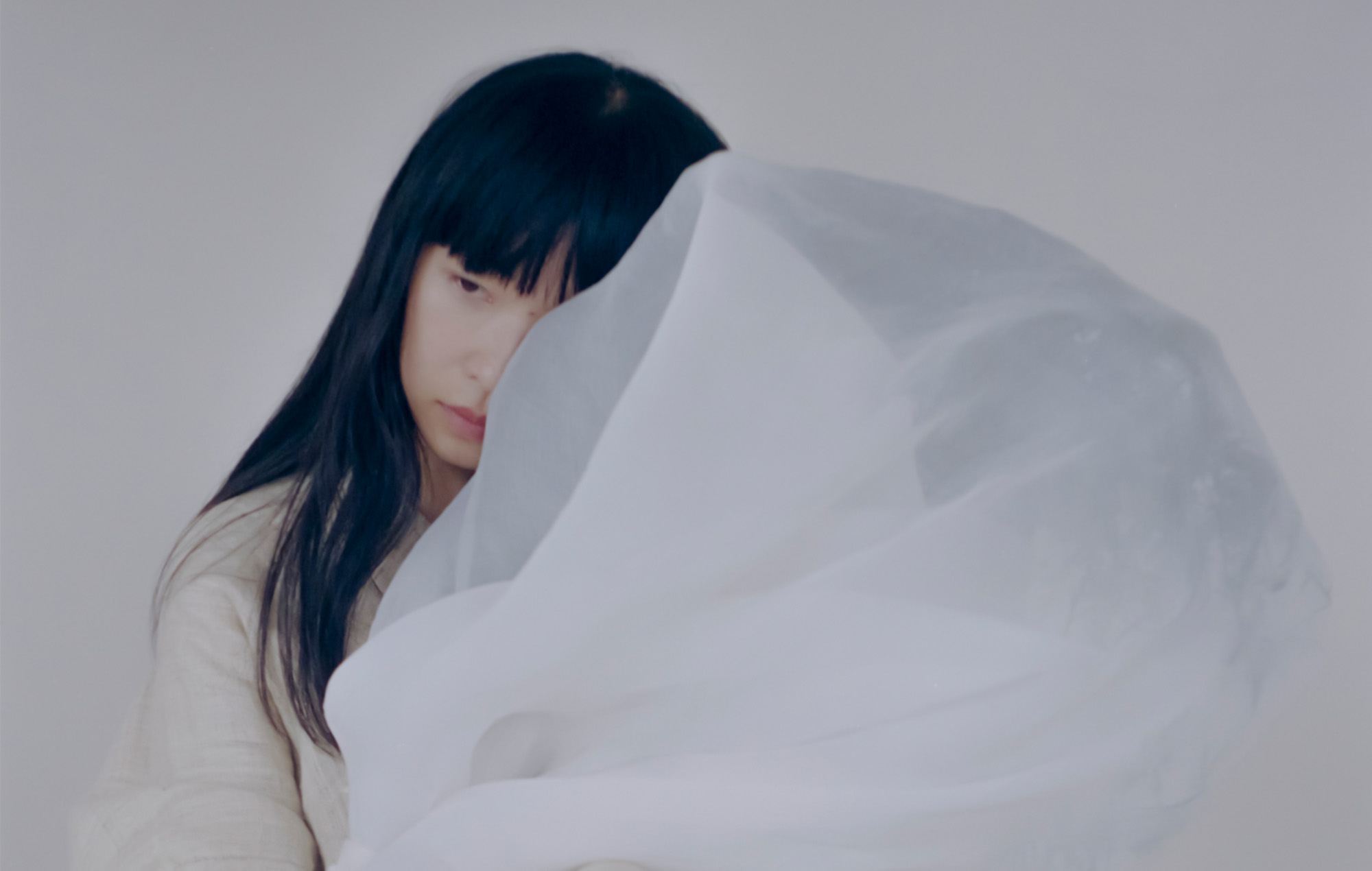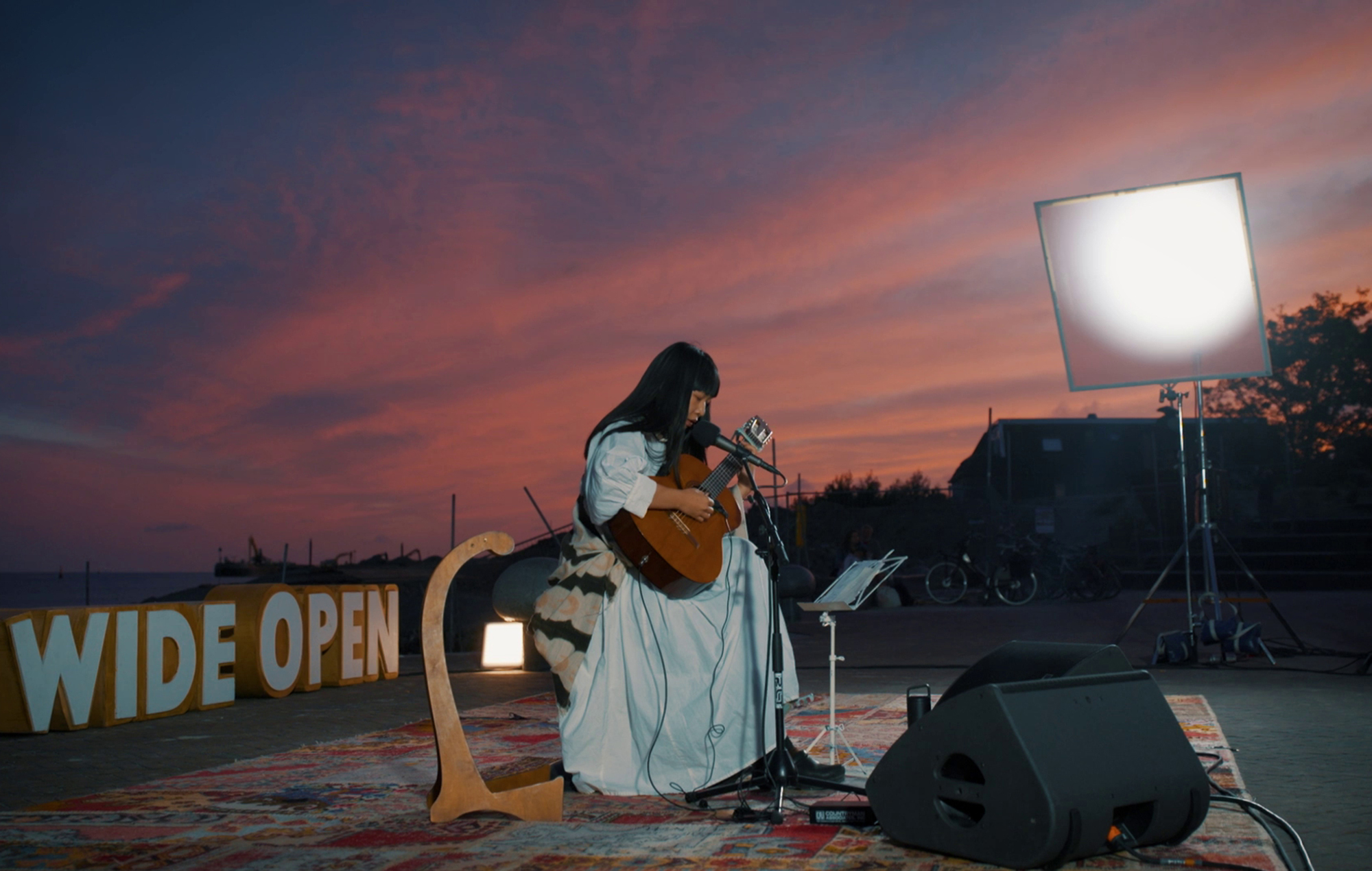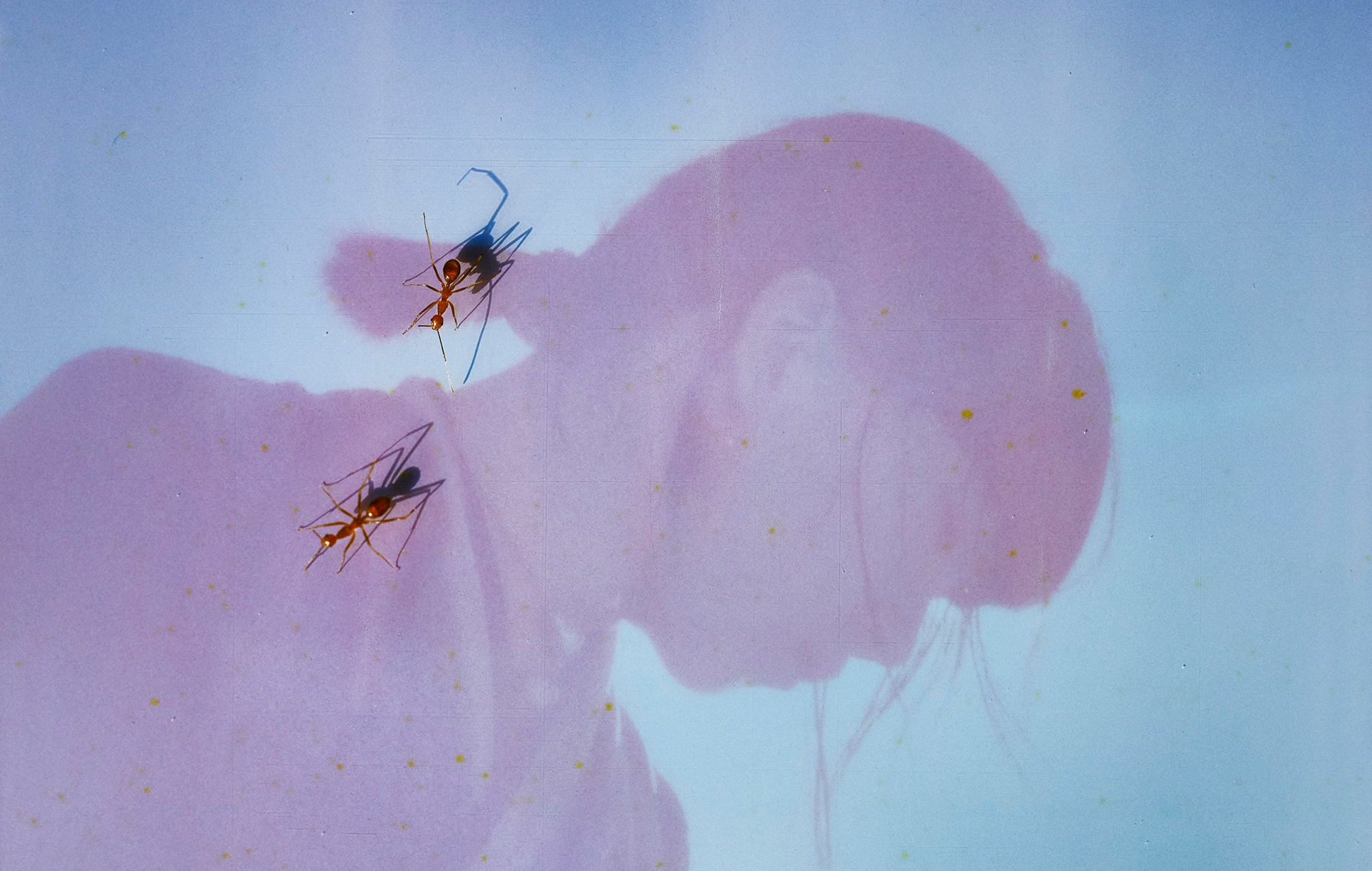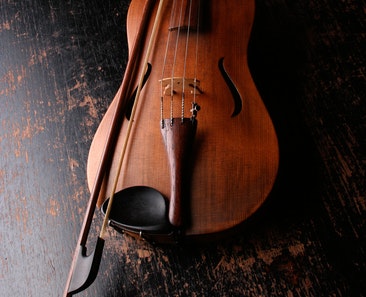Ichiko Aoba’s oceanic dreams

It’s a chilly evening on Hateruma Island and a boy is looking for a dog. He runs out of the simply lit room where Ichiko Aoba is sitting, mid-conversation with NME. The Japanese singer-songwriter breaks her train of thought; with a gentle giggle, she peeks out of the door after him.
- READ MORE: XG: in pursuit of the infinite
It’s a lighthearted, enchanting image befitting the ambient folk artist who has spellbound listeners across the world with an equally magical simplicity. Aoba’s signature sound is decidedly sparse: many of her songs simply pair her serene, glass-like voice with skillful classical guitar – but the results are sublime. Whether in freezing concert halls or on acclaimed studio albums like ‘0’ and ‘qp’, Aoba’s minimalism carries an unspeakable, near-surreal gravity.
Recently, however, the Kyoto artist’s universe has become more concrete. Aoba has become increasingly informed by her own field research across Japan. Delicate field recordings on 2019’s ‘Ayukawa no Shizuku’ documented her intimate encounters with natural landscapes, while the Ryukyu Archipelago inspired her 2020 breakthrough, ‘Windswept Adan’ – conceptualised as a fictional film score to the story of a girl sent away to a fantastical island. On that record, her music also took flight into richer textures, from psychedelic chamber folk to ambient drones and classical arrangements.
Amid these travels, Aoba was mesmerised particularly by the beauty of Hateruma Island, nestled at Okinawa’s southernmost point. As she continued to visit the island’s communities, “I thought about how the people of the island had lived all the way to this time and where they were right now,” she shares. “As I absorbed these ancient songs, those lifestyles and traditions made their way naturally into the album.”

Aoba found herself shifting from attentive observer to active participant. The second track of her new album ‘Luminescent Creatures’ is a festival folk song: during Mushama, devotees pray to ancestors for good harvests and protection. It’s the island’s largest festival, though participation has dwindled over time. “At some point in the spring, I was asked by someone in the village if I could play this on the sanshin,” Aoba recalls. “I was told that if I could play it by summer, they would show me to the elders of the community. If they approved, then I could play in the festival. It was a few loose tests, but after I passed, I was allowed to participate.”
The song’s title ‘24° 03′ 27.0″ N 123° 47′ 7.5″ E’, the coordinates of the island’s lighthouse, feels like an apt metaphor for the beacon Aoba’s music has become, calling to listeners across language barriers. Her musicality feels instantly transportive, therapeutic – and somehow, familiar. It’s a borderless quality that’s attracted collaborators including the likes of Cornelius, Ryuichi Sakamoto, Pomme, Mac Demarco and more.
For ‘Luminescent Creatures’, her eighth album, Aoba returned to the core team that worked on ‘Windswept Adan’: composer and arranger Taro Umebayashi, mixing engineer Toshihiko Kasai and photographer Kodai Kobayashi. Digging deeper into the questions she began on that record, the four allowed sketches to grow into full arrangements and inquiries. The single ‘Luciférine’ was a key example: as they absorbed inspiration from films and picture books, images of mushrooms, marine life and bioluminescence coalesced to tell a story of primordial histories.
“Even when I have songs grand in scale, there’s an unchanging loneliness within me”
“I can create a world by myself, but each person can make apparent what the other is missing,” Aoba says. “It’s like holding up a mirror to the other person, and it’s like being able to see the voids and fragilities within each other. When I’m alone, I can hold up a mirror too, but I might not be able to see everything.”
Aoba, in particular, highlights working with Umebayashi as the most transformative process of her career. The breathtaking ‘Coloratura’ demonstrates their synergy – an impressionistic chamber jazz constellation of harps, flutes and strings. “I wanted to create an opening scene of a pirate ship with tattered sails, being swallowed by stormy seas,” Aoba says. “After drifting dizzily to the bottom of the ocean, you see a dazzling world, as you meet the tiny, luminous sea creatures surrounding you.”
Aoba’s vivid dreams and brilliant imagination often serve as foundations for her songwriting. “Even if I don’t try to dream, I see them, and my stock of dreams extends eternally because of that,” she says. But the record’s iridescent images also reflect real-life experiences. Diving and swimming with whales, she shares, influenced her foray into electronic textures on ‘Sonar’ and ‘Pirsomnia’.
“They would swim away from the shallow seas, and instead in parts deep offshore,” she recalls. “I would fall into pitch darkness, and there, I thought I saw what appeared to be bubbles or dust – when really they were glowing tips of jellyfish tentacles. As they revealed themselves, I realised they were flashing with light, fragmenting in seven different colours.”

As ‘Luminescent Creatures’ continues her fascination with the natural world, it becomes natural to wonder how Aoba thinks about environmentalism as a whole. But she refuses to be prescriptive. Instead of statements and slogans, Aoba questions how we can “naturally talk about the things we have now”.
She stresses how the environment is something already deeply embodied: “It’s not something that I suddenly began thinking about, but something that we’re already biologically attuned to,” she explains. “It’s like our body’s water content when it leaves or enters our body – it makes you aware of the ways that we’re connected to the water levels of the earth.”
Aoba’s artistry is grounded by this sense of attuned instinct. Though her sonic palette has expanded over time, Aoba continues to sing solo with just her guitar on songs like ‘Flag’ and ‘Wakusei no Namida’, a mode she has refined since her musical beginnings. “Even when I have songs grand in scale, there’s an unchanging loneliness within me – and others too – that never goes away,” she says of her thought process writing on the guitar. It’s an element of her artistry she considers an unshakeable foundation: “It’s as if I live with an imaginary friend, and if I never forget about that friend, they will never disappear.”
“When humans realise that they’re alone and want to reach others, they glow”
Aoba has always meditated on loneliness in her music, but the premise of ‘Luminescent Creatures’ also made it a point of curiosity and connection. Why, she wondered, had these creatures in the ocean started to glow in the first place? “I thought it was because they had realised that they were alone, and they wanted to communicate with the creatures around them.
“I thought, those of us living right now, though our forms have changed, we think about the same things… even modern humans, when they realise that they’re alone and want to reach others, they glow. In many ways, we have never changed from those prehistoric creatures, and that was something that deeply moved me.”
That is why Aoba’s music has resonated with audiences around the world: though her dreams summon brilliant, speculative universes, they’re often grounded in a universal compassion. NME asks Aoba about dreaming in an increasingly pessimistic, hostile world. She replies that dreams are not necessarily always optimistic – and accepting them is an exercise in empathy.
“Dreams aren’t something where you can see the story in full, but are intertwined with reality and trauma – things that we see time and time again. But to be able to accept those dreams, even if they are unsavoury, is important,” she says.
“Whether it’s discrimination, gender, or borders, people who are suffering from these arbitrary delineations in society – they are all things I am affected by. If everyone were able to dream without being afraid of these judgements, we might be able to expand our societies bit by bit, and slowly make the world a more welcoming place.”
Ichiko Aoba’s ‘Luminescent Creatures’ is out February 28 via Hermine Records. Find dates and more info on Aoba’s world tour here
The post Ichiko Aoba’s oceanic dreams appeared first on NME.



